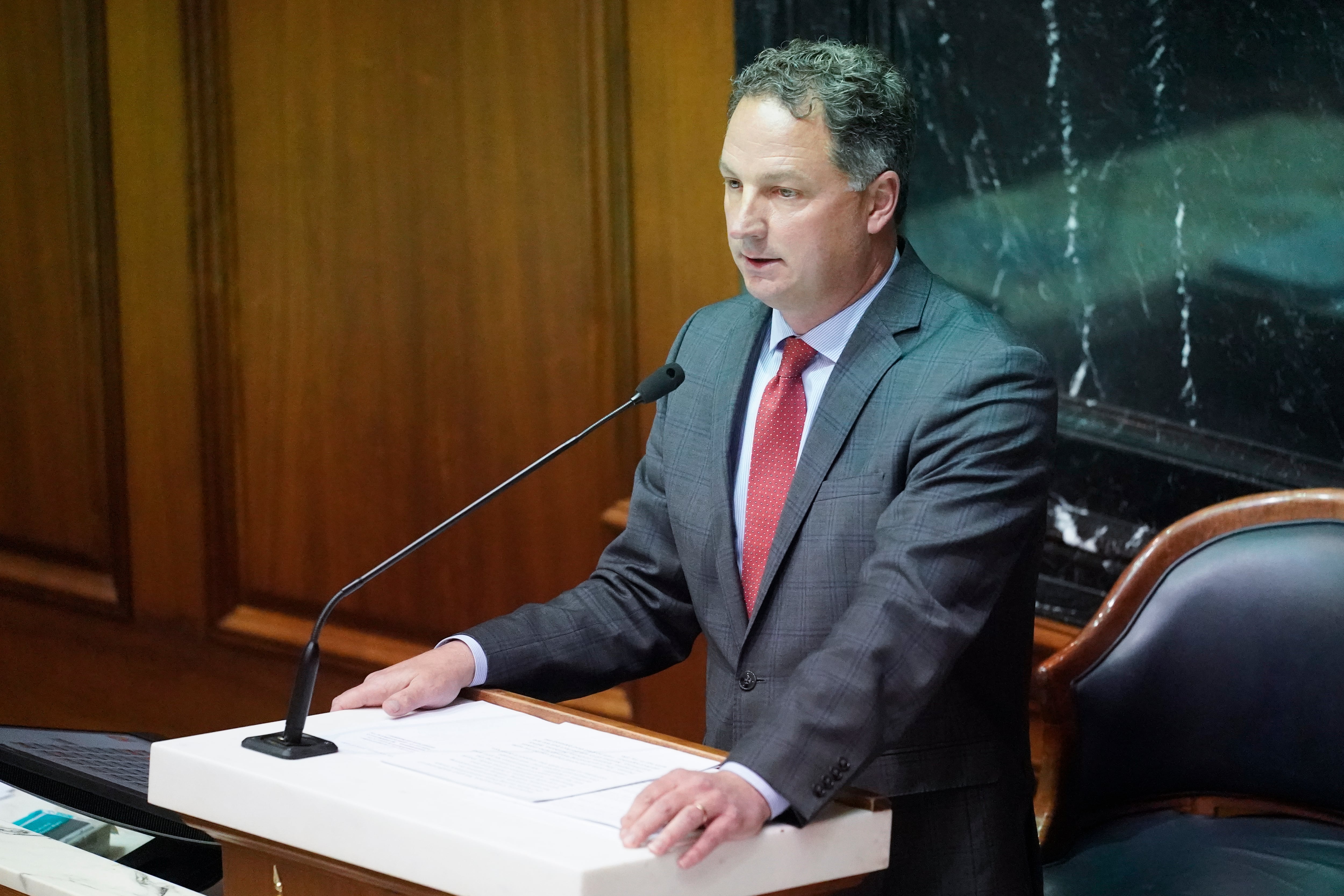Indiana Speaker of the House Todd Huston said Tuesday that lawmakers will move quickly to provide full state funding for K-12 students who are educated virtually — a crucial step to prevent schools across the state from losing revenue this spring.
Legislative leaders also said they hoped to stave off cuts to education in the coming budget — or even try to boost funding. But in the midst of a recession brought on by the coronavirus, leaders say the budget will hinge on coming revenue forecasts.
Lawmakers gathered at the Statehouse Tuesday for the ceremonial beginning of the 2021 session. They discussed how the legislature would adapt to the pandemic, including how to respond when people test positive, whether to allow members to vote remotely, and whether to require masks.
When the session reconvenes in January, lawmakers will face a host of pressing policy issues, and education will dominate that list.
Earlier this year, the Indiana State Board of Education suspended rules that limited payments to districts for virtual students to 85% of the state’s per-pupil allocation. Instead, the board fully funded students whom districts were educating online due to the pandemic. But to continue full funding for the spring, lawmakers must take action when they return.
During this crisis, we have “learned the nimbleness and flexibility needed to ensure children have access to high-quality education, no matter what the circumstances,” said Huston, a Republican. “We will continue to support full funding this academic year for all of our K-12 schools.”
Districts across the state regard maintaining full funding for virtual students as essential. Although Indiana schools are taking a patchwork of approaches to handling the crisis, many are returning to virtual instruction as the virus makes its second surge.
Indianapolis health officials announced last week that they will require all schools to suspend in-person instruction at least until Jan. 15. Other school districts, such as the suburban Hamilton Southeastern, have been forced to close buildings because they did not have enough staff due to sickness and quarantines.
Another important question for schools is how much money the legislature will allocate to education in the next two-year budget. Following the 2008 housing crash, Indiana slashed funding to schools to address a massive deficit. This time around, lawmakers hope they will be able to preserve funding for schools.
Senate President Pro Tem Rodric Bray, a Republican, said that lawmakers do not expect to cut K-12 education funding and instead actually would “like to give it a little bump.” But he said it’s too soon to provide specifics.
Indiana teachers began the year with strong momentum for increasing school funding and teacher pay after months of activism. But it may be challenging for teachers to persuade lawmakers amid a shrinking budget and other competing needs.





